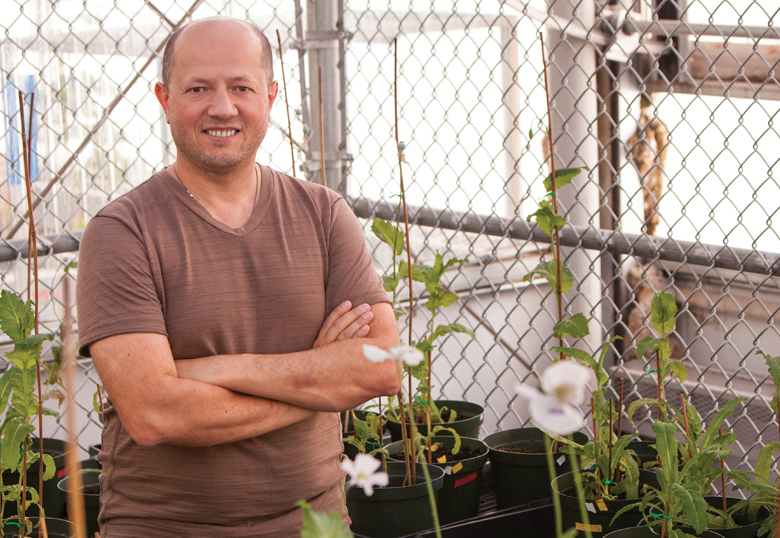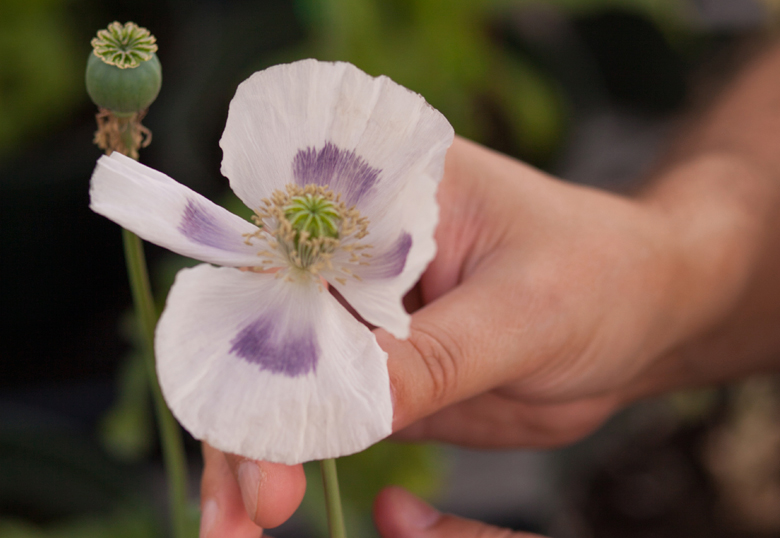If there is one thing that plants do well, it’s take changes in stride.
“Plants have an amazing capacity to respond immediately to stress and to propagate this response so future generations can be better prepared too,” says University of Lethbridge researcher Dr. Igor Kovalchuk.

A professor in the Department of Biological Sciences, Kovalchuk is a leading researcher in epigenetics, which studies how individual genes are expressed or “switched on” by environmental factors. Specifically, Kovalchuk is investigating how plants evolve rapidly to handle various stressors, everything from temperature extremes, viruses and bacteria to toxic or nutritionally deficient soil.
With funding from Alberta Innovates Health Solutions, the Canada Foundation for Innovation and the Natural Sciences and Engineering Research Council of Canada, Kovalchuk is exploring ways to tinker with plants’ genes. His goal: to produce hardier crops that are increasingly resistant to stress and even able to detect pollution. This capability, in turn, will help to improve the efficiency, profitability and overall success of farms.
Thanks to Kovalchuk, in fact, the Canadian Prairies could one day be dotted with fields of medicinal poppies. He is currently working with a Canadian biotech company that plans to develop a market for the high thebaine poppy industry in Canada. A significant cash crop opportunity, high thebaine poppies are used to create valuable medicines, but unlike their traditional counterparts, cannot easily be converted into heroin.

Meanwhile, Kovalchuk’s own company, Plantbiosis, is developing new varieties of plants that can sense and signal the presence of pollution. Such information could, for example, warn farmers if their well water is contaminated.
Clearly, the potential impact of Kovalchuk’s work is far-reaching. He is quick to point out, however, that his research has benefitted considerably from the time and talents of many U of L students.
“Without students, there simply wouldn’t be a plant biotechnology lab,” he says.
Over the years, Kovalchuk has trained more than 100 undergraduate and graduate students, and post-doctoral fellows to assist with various aspects of his epigenetic studies. One of those emerging researchers is Aki Matsuoka (BSc ’10).
Now a PhD student in biological sciences, Matsuoka discovered her passion for research while completing an independent project as an undergraduate student in Kovalchuk’s lab.
“I learned to love biology research,” says Matsuoka. “It was great to have that opportunity available to students who were willing to learn and to work hard.”
Matsuoka went on to complete a summer placement in Kovalchuk’s lab, and remained there during her master’s studies before she eventually transferred to the PhD program. Today, Matsuoka’s research is supervised jointly by Kovalchuk and Dr. Alicja Ziemienowicz, a research biologist at Agriculture and Agri-Food Canada
“Both my supervisors have been training me to think critically, which has led me to expand my horizons and become a better researcher,” says Matsuoka. “I appreciate their support so much.”
*
Kovalchuk received the 2013 Innovation in Agricultural Science Award from ASTech, the Alberta Science and Technology Leadership Foundation. The honour recognizes an individual, team or company that has demonstrated exceptional innovation or has developed a technology of significance to Alberta's agriculture industries. Nominations for the 2015 ASTech awards open Apr. 1. For more information, or to nominate, visit the ASTech website.
